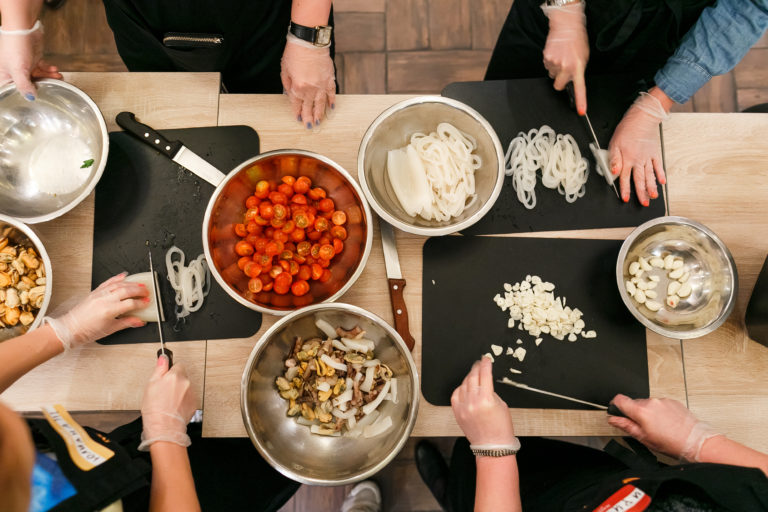This month, we attended the Farmers Market 2022 InTents Conference, hosted by our friends at FarmersMarketPros. We went to learn more about farmers markets and explore aligning resources and opportunities with our shared kitchen community. During the conference, we spoke to a multitude of farmers market managers. Their perspectives provided us with insight for future collaborations. What we did not expect to discover, however, were the gleaming similarities in mission and operations between farmers market managers and shared kitchen managers.
Before attending the conference we interviewed several kitchen owners to determine if this was a mutualistic relationship worth exploring. We spoke to Lisa Dearden, owner and manager of Chiknegg Incubator Kitchen. Perhaps you will find your own similarities or resonate with her story.
After over twenty years in sales and marketing, Lisa Dearden moved to rural Goochland County, Virginia and bought a small farm where she took up organic gardening and a passion for the local food movement. This passion brought her back to school, where she earned a Horticulture degree and a Certificate in Sustainable Agriculture. She went on to offer regional agricultural education, managed one of the largest farmers markets for The Center for Rural Culture in Central Virginia, and even founded her own market.
Through her time as a market manager, she developed relationships with local food entrepreneurs who were passionate about their products, but did not understand how to grow their business to its full potential. With this insight, in 2011, Lisa took her food systems knowledge and management acumen and hatched a new project, Chiknegg Incubator Kitchen. The kitchen serves as an educational space for food entrepreneurs, providing consulting, training and commercial kitchen space for rent.
In 2015, she revisited her farmers market venture, this time recognizing that a nonprofit structure would better suit her vision. Lisa founded RVAg, a nonprofit which provides venues to local farmers and artisans, offering a direct point of sale between local makers and consumers. Its nonprofit structure provides more resources to the company and allows its educational programs to be more accessible to the community. RVAg operates with the mission, “to create and market vibrant venues for local farmers and artisans so they can offer their products directly to consumers in order to cultivate community engagement, using local food as a common link.”
Lisa now runs 5 markets through RVAg and developed an online farmers market during COVID, which offers her vendors a continued sales platform. With this model, vendors list their products and available inventory for customers to purchase and then market staff aggregates those orders and delivers to 8 locations. For vendors that sell across multiple markets, the inventory depletes as purchases are made.
Lisa’s two business ventures, Chiknegg Incubator Kitchen and RVAg work collectively, offering training, consulting, and physical kitchen space for budding food entrepreneurs. It is apparent that the relationships established between the businesses and their community are the bedrock of the local food system. Lisa realized the production and sales channels were intimately connected.
Looking Ahead…
After speaking with Lisa and others within the shared kitchen industry with similar cross pollinating business models, we recognize their value in supporting local food businesses. Lisa’s work with Chiknegg Incubator Kitchen and RVAg reminds us why the partnership between farmers markets and shared kitchens provides further opportunities for food businesses, and ultimately works towards the goal of developing more vibrant, sustainable and localized food systems. We are excited to learn more and find new ways to support these synergistic models.
Do you manage a Farmers Market in your local community? Contact us if you would like your story to be shared in our Kitchen Conversations Series.

